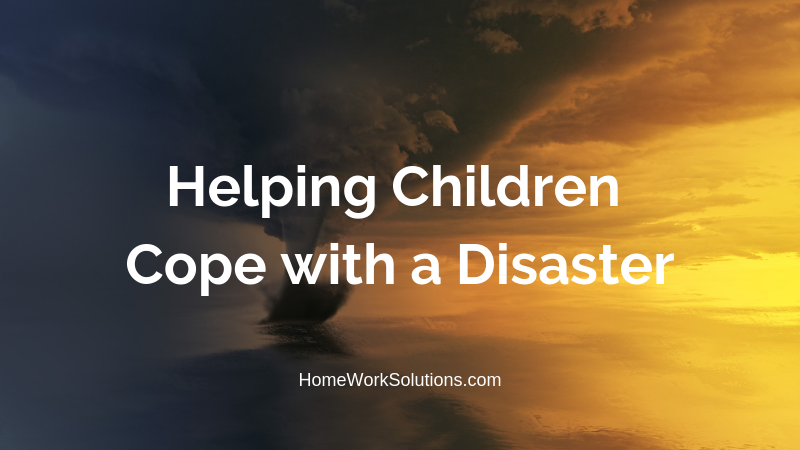
Navigating the world as a child can be exciting, confusing, and overwhelming. Growing up is full of all sorts of ups and downs, but when disaster strikes, it can be something that could be life changing for a child. If you are involved in the life of a child that has experienced something disastrous, there are some specific things you can do to help them get through the situation and help them process their emotions in healthy ways. Here are some tips on helping children cope with a disaster.
#1: Understand that anxiety and fear are normal.
When disaster happens, it is very common for children to experience some fear and anxiety. The best thing you can do if they are expressing feelings of fear or anxiousness, is to let them talk about their feelings as much as possible and encourage them to get back into a sense of routine as soon they can. Make meal times and bed times the same and stick to as many other “regular” things as possible. If you can help bring them back to a sense of familiarity with the positive things in their life, it can help with the loss or trauma that they are experiencing.
#2: Know physical symptoms.
As with adults, stress because of disaster or trauma can not just manifest with emotional behavior, but with physical symptoms as well. If the child in your life is having regular headaches, general aches and pains, digestive or skin problems, difficulty sleeping, or if there is a significant change in eating habits, this is something that should be addressed. Be sure that you seek a medical professional if there are severe physical symptoms, but in the meantime, it’s ok to provide nurturing and loving physical contact with them. Hugs are important, in addition to helping teach them some deep breathing exercises that can help regulate their stress level. You can also encourage the child to snuggle up with you and let them hear the regularity of your heartbeat. The sound of a parent or loved one’s heartbeat is soothing and comforting and can help bring a sense of balance back to what may seem like chaos to them.
#3: Show support.
Finding fun and humor in whatever you can is helpful and showing your child that you’re there for them no matter what will go a long way. Talk to them about instances in the past where something difficult may have happened and talk about how you and your family pulled together to come through the other side with confidence. Work hard to reassure them that everything will be okay in the end and give them the opportunity to take part in the healing or recovery process in a way that makes sense to them. This gives them a sense of ownership in their own lives and will empower them to be strong and brave.
Our tips on helping children cope with a disaster should not take the place of professional counseling or advice that you or your child could benefit from. If the stressor in the child's life is preventing them from living life to the fullest or participating in regular daily activities, talk to a health provider right away.
